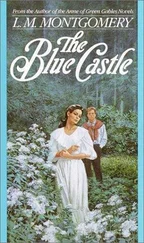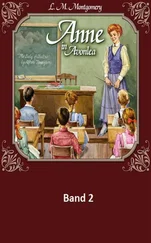Lucy Montgomery - Rilla of Ingleside
Здесь есть возможность читать онлайн «Lucy Montgomery - Rilla of Ingleside» весь текст электронной книги совершенно бесплатно (целиком полную версию без сокращений). В некоторых случаях можно слушать аудио, скачать через торрент в формате fb2 и присутствует краткое содержание. Жанр: Детская проза, на английском языке. Описание произведения, (предисловие) а так же отзывы посетителей доступны на портале библиотеки ЛибКат.
- Название:Rilla of Ingleside
- Автор:
- Жанр:
- Год:неизвестен
- ISBN:нет данных
- Рейтинг книги:4 / 5. Голосов: 1
-
Избранное:Добавить в избранное
- Отзывы:
-
Ваша оценка:
- 80
- 1
- 2
- 3
- 4
- 5
Rilla of Ingleside: краткое содержание, описание и аннотация
Предлагаем к чтению аннотацию, описание, краткое содержание или предисловие (зависит от того, что написал сам автор книги «Rilla of Ingleside»). Если вы не нашли необходимую информацию о книге — напишите в комментариях, мы постараемся отыскать её.
Rilla of Ingleside — читать онлайн бесплатно полную книгу (весь текст) целиком
Ниже представлен текст книги, разбитый по страницам. Система сохранения места последней прочитанной страницы, позволяет с удобством читать онлайн бесплатно книгу «Rilla of Ingleside», без необходимости каждый раз заново искать на чём Вы остановились. Поставьте закладку, и сможете в любой момент перейти на страницу, на которой закончили чтение.
Интервал:
Закладка:
"I would really not have minded being a war-bride myself," remarked Susan sentimentally.
But Rilla felt rather flat—perhaps as a reaction to all the excitement and rush of the past thirty-six hours. She was disappointed somehow—the whole affair had been so ludicrous, and Miranda and Joe so lachrymose and commonplace.
"If Miranda hadn't given that wretched dog such an enormous dinner he wouldn't have had that fit," she said crossly. "I warned her—but she said she couldn't starve the poor dog—he would soon be all she had left, etc. I could have shaken her."
"The best man was more excited than Joe was," said Susan. "He wished Miranda many happy returns of the day. She did not look very happy, but perhaps you could not expect that under the circumstances."
"Anyhow," thought Rilla, "I can write a perfectly killing account of it all to the boys. How Jem will howl over Sir Wilfrid's part in it!"
But if Rilla was rather disappointed in the war wedding she found nothing lacking on Friday morning when Miranda said good-bye to her bridegroom at the Glen station. The dawn was white as a pearl, clear as a diamond. Behind the station the balsamy copse of young firs was frost-misted. The cold moon of dawn hung over the westering snow fields but the golden fleeces of sunrise shone above the maples up at Ingleside. Joe took his pale little bride in his arms and she lifted her face to his. Rilla choked suddenly. It did not matter that Miranda was insignificant and commonplace and flat-featured. It did not matter that she was the daughter of Whiskers-on-the-moon. All that mattered was that rapt, sacrificial look in her eyes—that ever-burning, sacred fire of devotion and loyalty and fine courage that she was mutely promising Joe she and thousands of other women would keep alive at home while their men held the Western front. Rilla walked away, realising that she must not spy on such a moment. She went down to the end of the platform where Sir Wilfrid and Dog Monday were sitting, looking at each other.
Sir Wilfrid remarked condescendingly: "Why do you haunt this old shed when you might lie on the hearthrug at Ingleside and live on the fat of the land? Is it a pose? Or a fixed idea?"
Whereat Dog Monday, laconically: "I have a tryst to keep."
When the train had gone Rilla rejoined the little trembling Miranda. "Well, he's gone," said Miranda, "and he may never come back—but I'm his wife, and I'm going to be worthy of him. I'm going home."
"Don't you think you had better come with me now?" asked Rilla doubtfully. Nobody knew yet how Mr. Pryor had taken the matter.
"No. If Joe can face the Huns I guess I can face father," said Miranda daringly. "A soldier's wife can't be a coward. Come on, Wilfy. I'll go straight home and meet the worst."
There was nothing very dreadful to face, however. Perhaps Mr. Pryor had reflected that housekeepers were hard to get and that there were many Milgrave homes open to Miranda—also, that there was such a thing as a separation allowance. At all events, though he told her grumpily that she had made a nice fool of herself, and would live to regret it, he said nothing worse, and Mrs. Joe put on her apron and went to work as usual, while Sir Wilfrid Laurier, who had a poor opinion of lighthouses for winter residences, went to sleep in his pet nook behind the woodbox, a thankful dog that he was done with war-weddings.
Chapter XIX
"THEY SHALL NOT PASS"
One cold grey morning in February Gertrude Oliver wakened with a shiver, slipped into Rilla's room, and crept in beside her.
"Rilla—I'm frightened—frightened as a baby—I've had another of my strange dreams. Something terrible is before us—I know."
"What was it?" asked Rilla.
"I was standing again on the veranda steps—just as I stood in that dream on the night before the lighthouse dance, and in the sky a huge black, menacing thunder cloud rolled up from the east. I could see its shadow racing before it and when it enveloped me I shivered with icy cold. Then the storm broke—and it was a dreadful storm—blinding flash after flash and deafening peal after peal, driving torrents of rain. I turned in panic and tried to run for shelter, and as I did so a man—a soldier in the uniform of a French army officer—dashed up the steps and stood beside me on the threshold of the door. His clothes were soaked with blood from a wound in his breast, he seemed spent and exhausted; but his white face was set and his eyes blazed in his hollow face. 'They shall not pass,' he said, in low, passionate tones which I heard distinctly amid all the turmoil of the storm. Then I awakened. Rilla, I'm frightened—the spring will not bring the Big Push we've all been hoping for—instead it is going to bring some dreadful blow to France. I am sure of it. The Germans will try to smash through somewhere."
"But he told you that they would not pass," said Rilla, seriously. She never laughed at Gertrude's dreams as the doctor did.
"I do not know if that was prophecy or desperation, Rilla, the horror of that dream holds me yet in an icy grip. We shall need all our courage before long."
Dr. Blythe did laugh at the breakfast table—but he never laughed at Miss Oliver's dreams again; for that day brought news of the opening of the Verdun offensive, and thereafter through all the beautiful weeks of spring the Ingleside family, one and all, lived in a trance of dread. There were days when they waited in despair for the end as foot by foot the Germans crept nearer and nearer to the grim barrier of desperate France.
Susan's deeds were in her spotless kitchen at Ingleside, but her thoughts were on the hills around Verdun. "Mrs. Dr. dear," she would stick her head in at Mrs. Blythe's door the last thing at night to remark, "I do hope the French have hung onto the Crow's Wood today," and she woke at dawn to wonder if Dead Man's Hill—surely named by some prophet—was still held by the "poyloos." Susan could have drawn a map of the country around Verdun that would have satisfied a chief of staff.
"If the Germans capture Verdun the spirit of France will be broken," Miss Oliver said bitterly.
"But they will not capture it," staunchly said Susan, who could not eat her dinner that day for fear lest they do that very thing. "In the first place, you dreamed they would not—you dreamed the very thing the French are saying before they ever said it—'they shall not pass.' I declare to you, Miss Oliver, dear, when I read that in the paper, and remembered your dream, I went cold all over with awe. It seemed to me like Biblical times when people dreamed things like that quite frequently.
"I know—I know," said Gertrude, walking restlessly about. "I cling to a persistent faith in my dream, too—but every time bad news comes it fails me. Then I tell myself 'mere coincidence'—'subconscious memory' and so forth."
"I do not see how any memory could remember a thing before it was ever said at all," persisted Susan, "though of course I am not educated like you and the doctor. I would rather not be, if it makes anything as simple as that so hard to believe. But in any case we need not worry over Verdun, even if the Huns get it. Joffre says it has no military significance."
"That old sop of comfort has been served up too often already when reverses came," retorted Gertrude. "It has lost its power to charm."
"Was there ever a battle like this in the world before?" said Mr. Meredith, one evening in mid-April.
"It's such a titanic thing we can't grasp it," said the doctor. "What were the scraps of a few Homeric handfuls compared to this? The whole Trojan war might be fought around a Verdun fort and a newspaper correspondent would give it no more than a sentence. I am not in the confidence of the occult powers"—the doctor threw Gertrude a twinkle—"but I have a hunch that the fate of the whole war hangs on the issue of Verdun. As Susan and Joffre say, it has no real military significance; but it has the tremendous significance of an Idea. If Germany wins there she will win the war. If she loses, the tide will set against her."
Читать дальшеИнтервал:
Закладка:
Похожие книги на «Rilla of Ingleside»
Представляем Вашему вниманию похожие книги на «Rilla of Ingleside» списком для выбора. Мы отобрали схожую по названию и смыслу литературу в надежде предоставить читателям больше вариантов отыскать новые, интересные, ещё непрочитанные произведения.
Обсуждение, отзывы о книге «Rilla of Ingleside» и просто собственные мнения читателей. Оставьте ваши комментарии, напишите, что Вы думаете о произведении, его смысле или главных героях. Укажите что конкретно понравилось, а что нет, и почему Вы так считаете.


